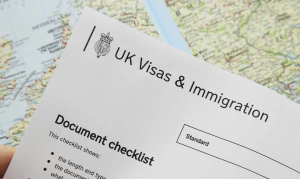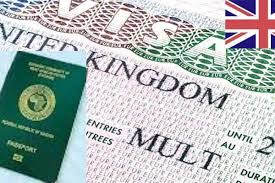
The United Kingdom’s immigration system recorded a financial windfall of over ₦40 billion from Nigerian visa applications between June 2023 and June 2024. This revenue underscores Nigeria’s prominence in the UK visa ecosystem, even as tightened immigration policies have strained the relationship between the two nations.
Data from the UK Visas and Immigration department revealed that over 225,000 visa applications from Nigerian nationals were processed within the review period. The average visa processing fee, pegged at $150 (₦120,000 at an exchange rate of ₦1,200 per dollar), brought in substantial revenue for the British government. It is noteworthy that this fee remains non-refundable, regardless of whether the visa application is approved or denied.
A Commitment to Enhanced Accessibility
During the launch of Africa’s largest UK Visa Application Centre (VAC) in Lagos, Marc Owen, Director of Visa, Status, and Information Services at UK Visas and Immigration, celebrated this development as part of the UK’s efforts to streamline its visa services.
“In the year to June 2024, we processed more than 225,000 UK visas for Nigerian nationals across all categories,” Owen stated. “This new partnership demonstrates our commitment to ensuring our visa services are accessible, efficient, and meet the needs of all applicants.”
The British High Commission in Lagos highlighted the center as a significant step toward addressing the surge in visa applications. However, this efficiency is juxtaposed with a worrying trend in visa rejections, particularly for Nigerian students and immigrants.
Rising Visa Rejections: A Growing Concern

Nigerian applicants have faced a dramatic increase in visa rejection rates, especially for study visas. In Q4 2023, the rejection rate surged to one in eight applications, compared to one in 31 in Q4 2022. This represents a 63% decline in visa issuances compared to the last quarter of 2022.
The UK government attributed this rise to stricter immigration policies, including amendments to dependent visa regulations and changes to the graduate route post-study work visa. Nigeria was among the top five countries most affected, alongside Vietnam, Indonesia, Saudi Arabia, and India, which reported even higher rejection rates than Nigeria.
The Financial Implications
While the surge in rejections may align with the UK’s goal of controlling immigration, it raises ethical concerns about the profitability of non-refundable visa fees. Many Nigerians invest heavily in their applications, often without recourse in the event of rejection.
This financial model, combined with tightened immigration policies, has drawn criticism for exploiting applicants from countries like Nigeria, where the desire for international education and opportunities often outweighs the risk of denial.
Shifting Focus: Nigerians Turn to the U.S.
Amid these challenges, Nigerians are increasingly pivoting toward the United States for education and work opportunities. In the 2023/2024 academic year, Nigeria emerged as the seventh-largest source of international students globally and the highest in Africa, with 20,029 enrolments in U.S. institutions.
This figure represents a 13.5% increase from the previous year, indicating growing interest in the U.S. as an alternative to the UK. The shift highlights a critical repercussion of the UK’s policies: the loss of potential talent to competing nations.
Balancing Revenue and Immigration Goals
While the UK continues to benefit from Nigeria’s significant contribution to its visa revenues, the rising rejection rates and policy changes may erode the country’s appeal as a destination for education and work.
To maintain a balanced relationship, experts suggest a reevaluation of immigration policies to ensure they do not inadvertently drive skilled talent and prospective students toward other nations.
For Nigerian applicants, the current landscape necessitates strategic planning, thorough application preparation, and a broader exploration of alternative destinations to achieve their international goals.

